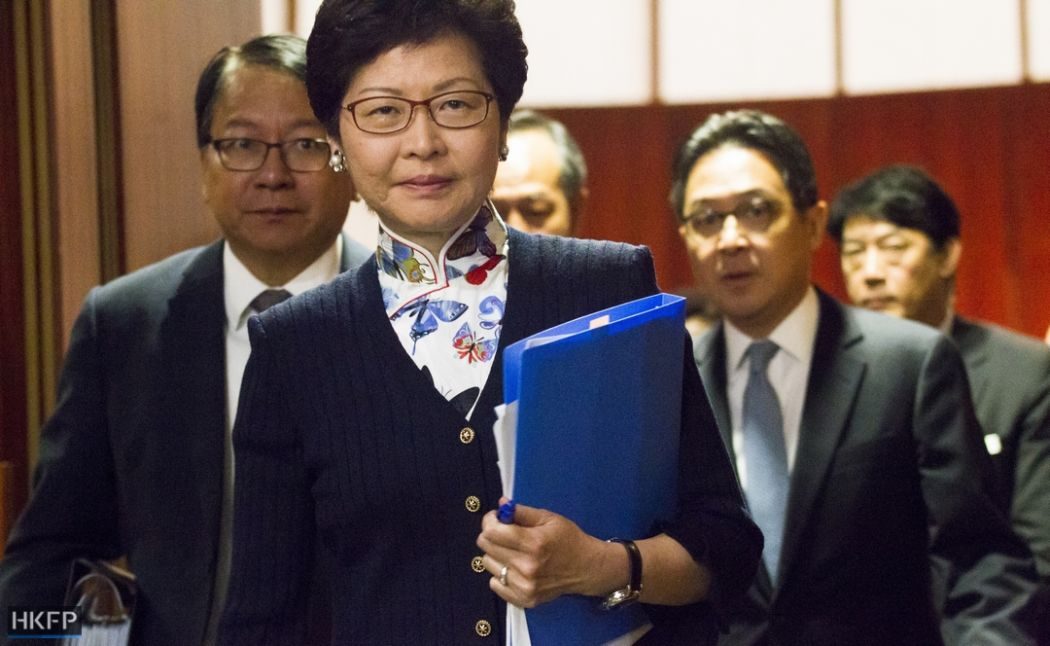Chief Executive Carrie Lam has dismissed concerns over interference by the China Liaison Office – Beijing’s organ in Hong Kong – in the city’s internal affairs.
The pro-democracy camp has long protested against the Liaison Office’s active involvement in local affairs. The Liaison Office was set up in 2000 to replace the Xinhua News Agency – then the unofficial representative body of the Chinese government in the city – and serve as a bridge between Beijing and Hong Kong.

Critics call the Office Hong Kong’s shadow government, alleging that it has its hands on a wide range of local affairs, including elections and political parties. Last month, the Office came under fire for sending an official to visit the Urban Renewal Authority and redevelopment project sites.
The Office was also accused of helping Lam secure votes in the leadership election earlier this year, though Lam has denied the claims.
See also: Beijing organ lobbying for candidates is not intervention, says pro-Beijing figure Elsie Leung
During Lam’s first Q&A session at the legislature as chief executive on Tuesday, lawmaker Alvin Yeung asked Lam if she has plans to restrict the Office’s role “in order to prevent the formation of a second governance team” in the territory.
Lam responded with a laugh. She said: “The work of the central government’s office in Hong Kong is defined by the central government. But I believe the central government has heard everyone’s opinions.”

“Lawmaker Yeung also agreed that the role of the Liaison Office is to handle liaison work [with local bodies], so of course their footprints are everywhere,” she added. “So I think there is no need to be oversensitive.”
Article 22
Yeung also asked Lam if she would legislate Article 22 of the Basic Law, which forbids Chinese government units from interfering in Hong Kong’s internal affairs. The provision in Hong Kong’s mini-constitution has yet to be codified in local laws.
Lam replied: “Article 22 says units of the central government are not allowed to interfere in our affairs. I don’t see why it is our job to set up rules or conditions for the central government.”
Pressed to state whether she intends to pass a law to prevent Beijing’s interference, Lam said: “I have no plans to legislate Article 22.”
See also: Visit to China office was not made to give thanks, Chief Exec.-elect Carrie Lam says

Meanwhile, she vowed to maintain the independence of her government: “As the chief executive and head of the executive branch, I will ensure that the executive branch will do its own work. This is why I proactively ask bureau heads to seek support from and persuade lawmakers on their own, instead of relying on others.”
She asked the public to “wait and see” whether her government will be able to fulfil the promise.
Political reform
On Tuesday, Lam said she understands Hongkongers’ desire for universal suffrage and that she has become more humble after her experience in this year’s leadership race.
Lam said that if the government reopened talks on political reform in the near future, there would be “serious internal conflict” and public debates, which she said would lead to economic stagnation.
“Political reform is always a very sensitive, complicated and difficult issue,” she said. “Its successful introduction is not determined by the executive branch; rather, it requires [the support] of two-thirds of the legislature, which is a very high bar.”
